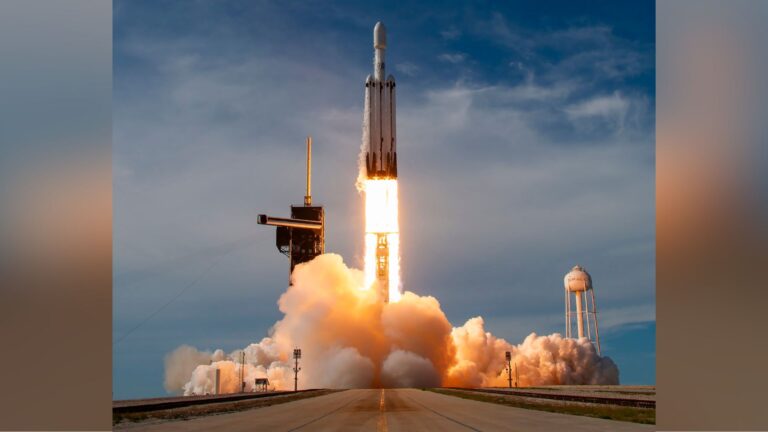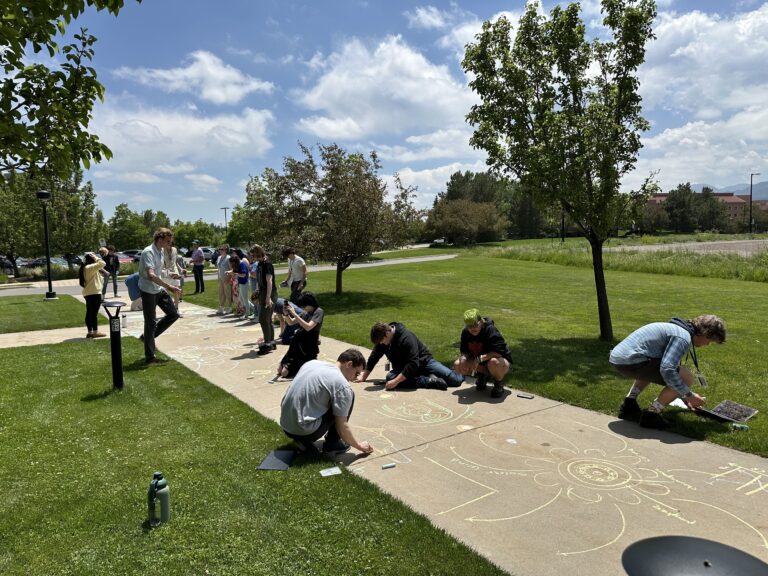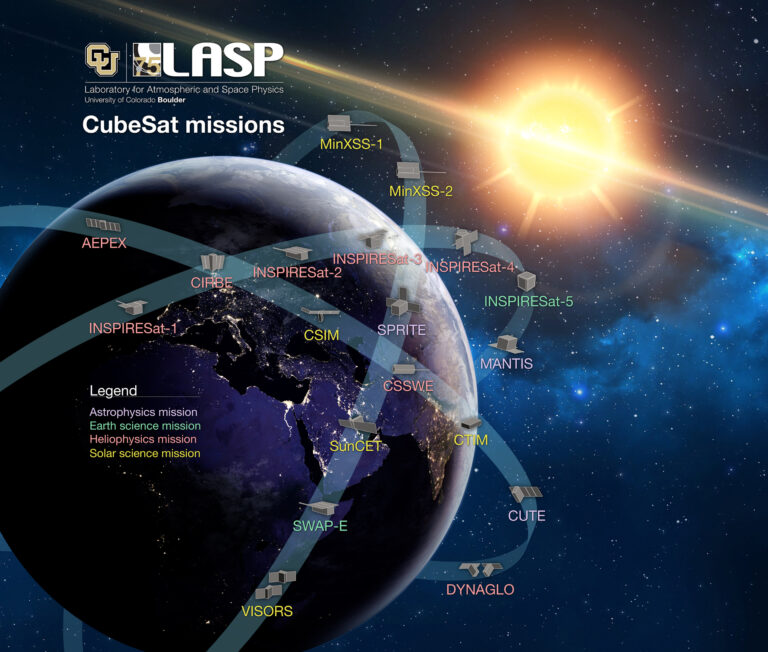
Daniel N. Baker, director of the Laboratory for Atmospheric and Space Physics (LASP) at the University of Colorado Boulder, has been named the recipient of the 2024 Jeoujang Jaw Award by the Committee on Space Research (COSPAR) and the Chinese Academy of Sciences (CAS). The joint award recognizes scientists who have made distinguished pioneering contributions to promoting space research, establishing new space science research branches, and founding new exploration programs.
“Daniel Baker is a recognized leader and a true team player. His scientific influence ranges over a number of topics,” the nominating committee wrote in the citation. “He has the ability to get people as well as groups to work together toward common goals. His insights and intuition have brought space science far from where it would be without him.”
In designating Baker, who has been the director of LASP since 1994, COSPAR and CAS cited his long record of promoting space research. Prior to joining LASP, Baker held leadership positions at Los Alamos National Laboratory and NASA Goddard Space Flight Center.
“We’re thrilled that Dan is being honored with this recognition from COSPAR,” said Massimo Ruzzene, vice chancellor for research and innovation and dean of the institutes at CU Boulder. “Through decades of promoting and supporting space research, Dan has helped solidify LASP and CU Boulder as a global hub for space research and workforce development, including partnerships with NASA, NOAA and many other organizations.”
Baker is currently an investigator on several NASA space missions, including the Geospace Dynamics Constellation, the Magnetospheric MultiScale mission, the Interstellar Mapping and Acceleration Probe, and the Van Allen Probes mission, and he has made major scientific contributions across a wide range of topics in space plasma physics. He has led several U.S. National Academy studies and reports, including serving as chair of the most recent National Academies’ decadal survey in solar and space physics.
“It is a distinct honor to receive the 2024 Jeoujang Jaw Award from COSPAR and the Chinese Academy of Sciences,” Baker said in accepting the award at the opening ceremony of the 45th COSPAR Scientific Assembly in Busan, South Korea. “I want to thank COSPAR for providing a framework within which it has been possible for me to pursue international scientific objectives. It has been a lifelong goal to explore the Earth’s environs, the Sun, and the planets of our solar system. Receiving the Jaw Award is a great validation of the efforts that have engaged my research life at NASA and the University of Colorado Boulder for such a long time.”
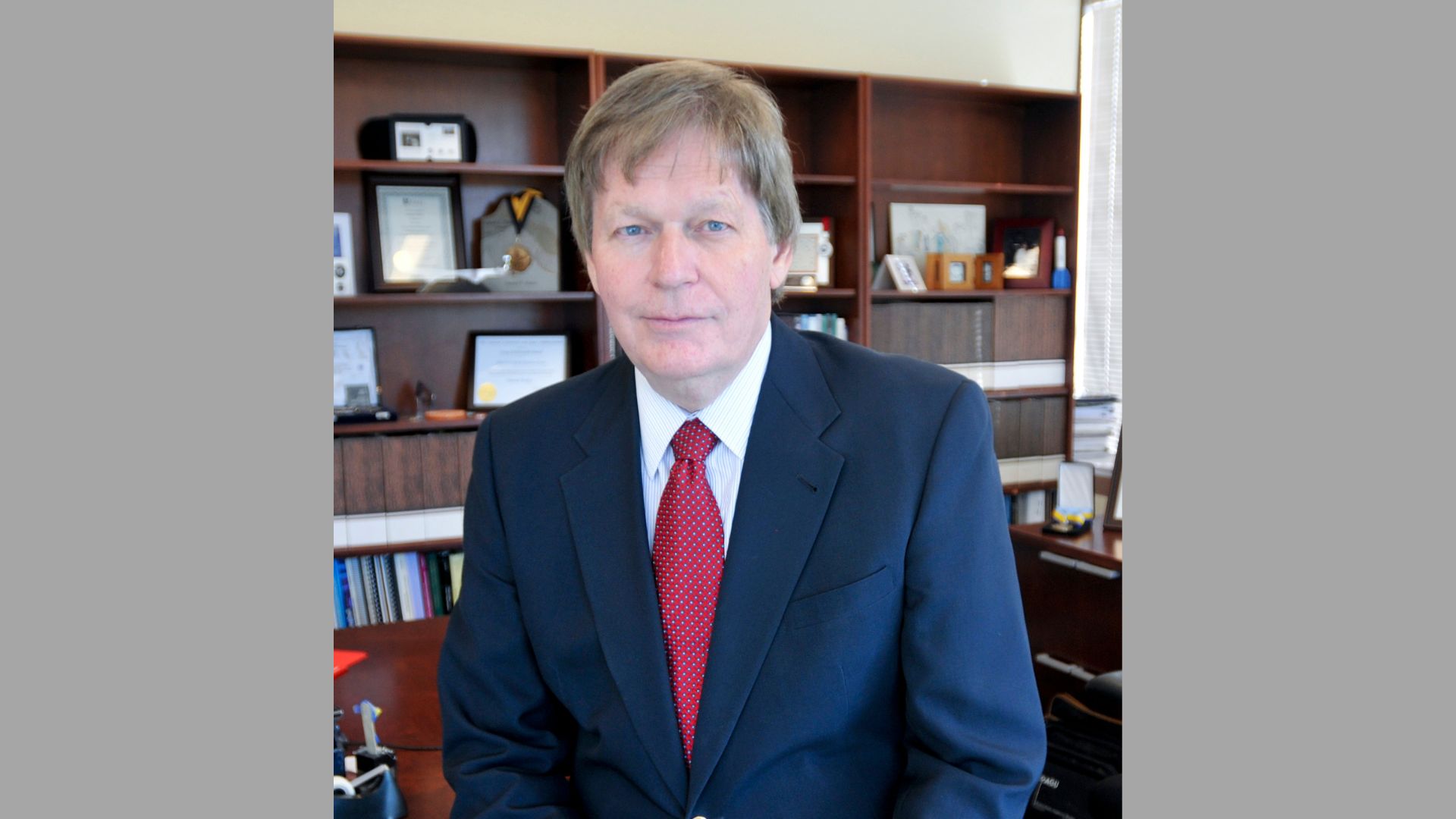
Baker has actively promoted space weather research and taken a leading role in developing the nation’s space weather program, informing Congress and the public about the potential hazards to humankind of extreme space weather events. His efforts include chairing national committees on societal and economic impacts of the space weather.
“Dr. Baker has continued to serve as a strong advocate for new scientific missions and strengthening our technological infrastructure through greater understanding of the potential extreme variability of the natural space environment,” COSPAR and CAS noted.
In addition to directing LASP, Baker also serves as a professor in three University of Colorado Boulder departments: Astrophysical and Planetary Sciences, Physics, and Aerospace Engineering Sciences. He conducts research in space instrument design, space physics data analysis, and magnetospheric modeling, with a primary research interest in plasma physical and energetic particle phenomena in planetary magnetospheres and in the Earth’s vicinity. He has published nearly 1,000 papers in the refereed literature and has edited nine books on topics in space physics.
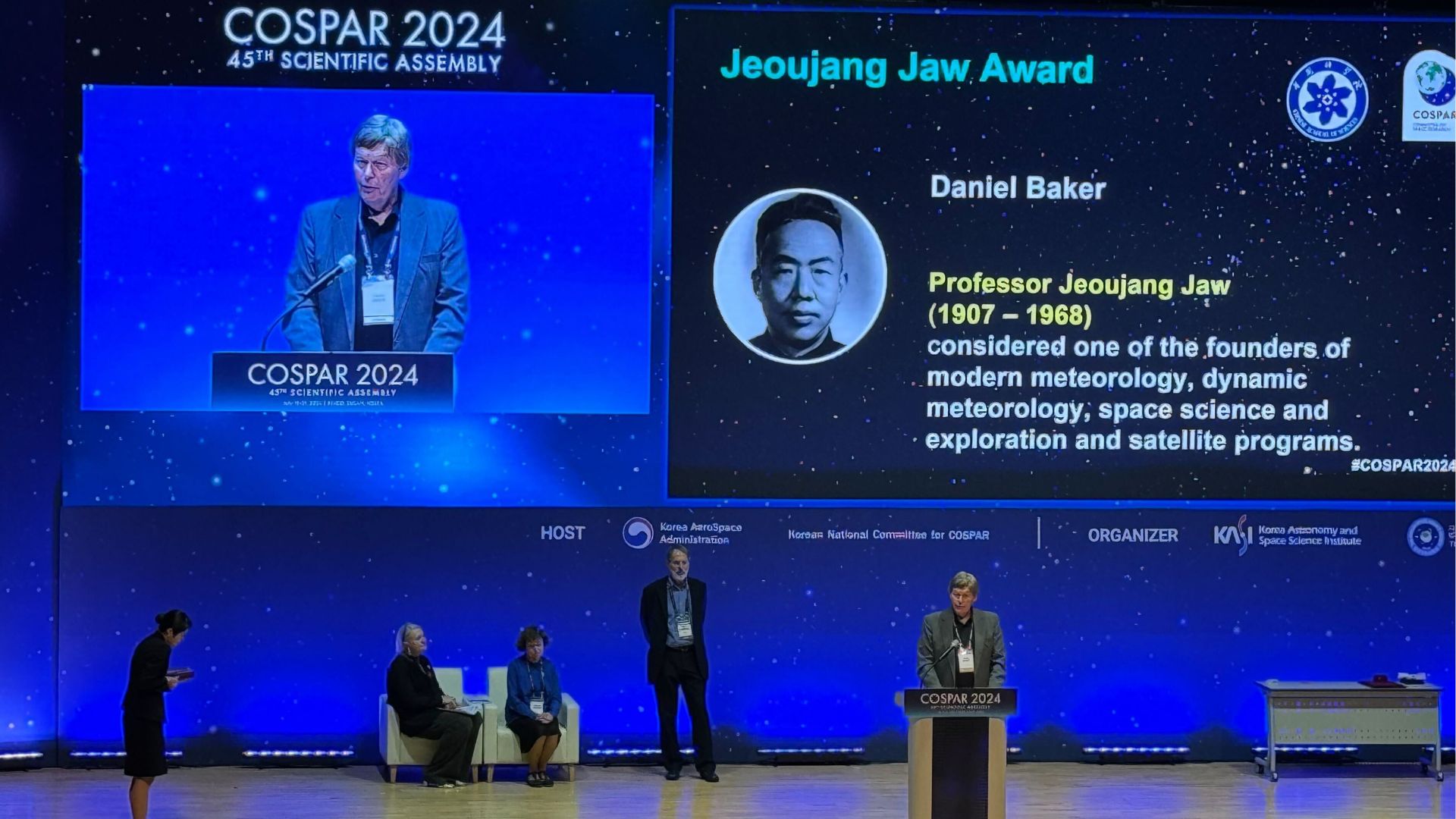
COSPAR was created in 1958, at the dawn of the space age, under the aegis of the International Council of Scientific Unions, now the International Science Council. COSPAR’s objectives are to promote on an international level scientific research in space, with emphasis on the exchange of results, information and opinions, and to provide a forum, open to all scientists, for the discussion of problems affecting space research.
The Jaw award was established in honor and memory of Professor Jeoujang Jaw, a member of CAS and founder of Chinese space research. His contributions include promoting and leading the initial design of the first Chinese satellite and establishing research and experimental work in the fields of numerical meteorology, high-altitude atmosphere physics, magnetosphere physics and interplanetary physics.
– By Sara Pratt, Senior Communications Specialist
Founded a decade before NASA, the Laboratory for Atmospheric and Space Physics at the University of Colorado Boulder is on a mission to revolutionize human understanding of the cosmos by pioneering new technologies and approaches to space science. The institute is at the forefront of solar, planetary, and space physics research, climate and space-weather monitoring, and the search for evidence of habitable worlds. LASP is also deeply committed to inspiring and educating the next generation of space explorers. From the first exploratory rocket measurements of Earth’s upper atmosphere to trailblazing observations of every planet in the solar system, LASP continues to build on its remarkable history with a nearly $1 billion portfolio of new research and engineering programs, backed by superb data analysis, reliable mission operations, and skilled administrative support.

